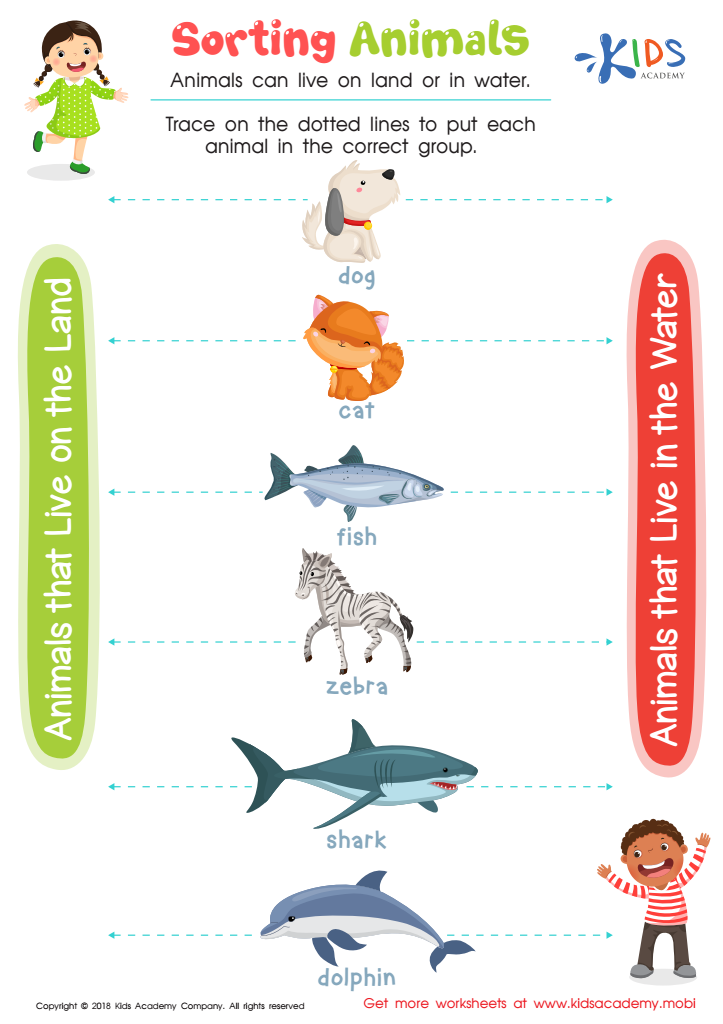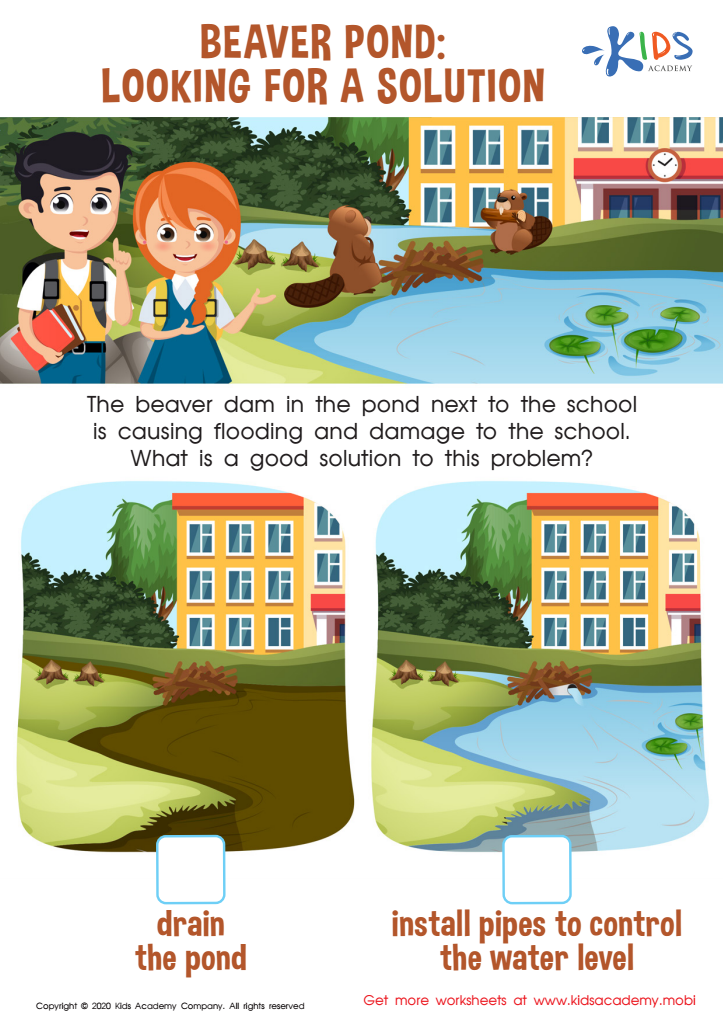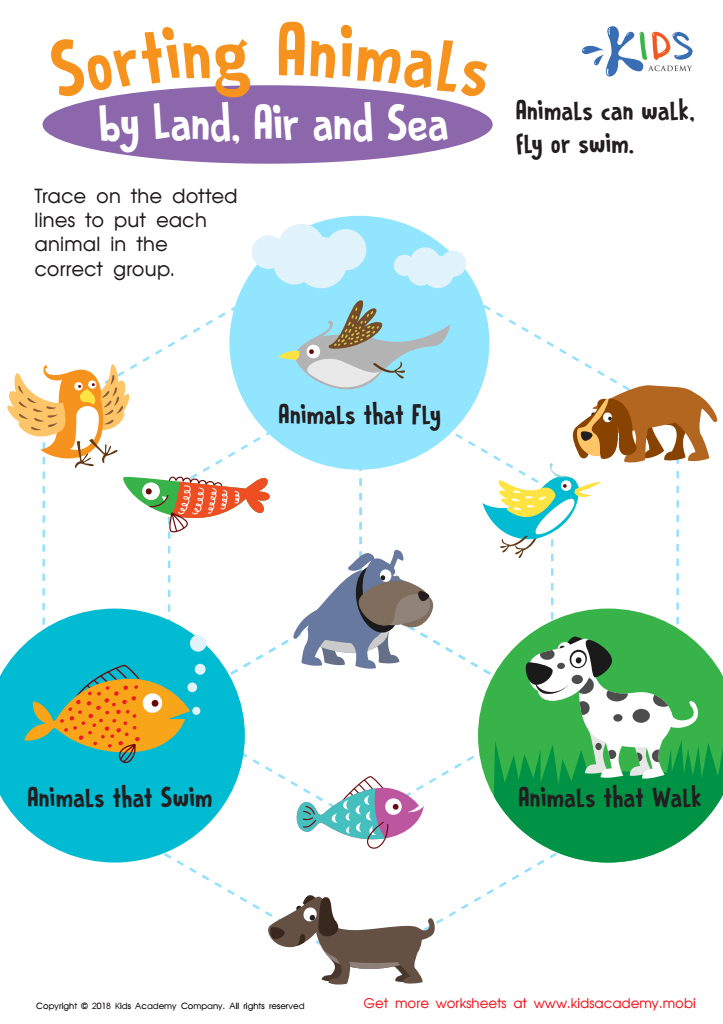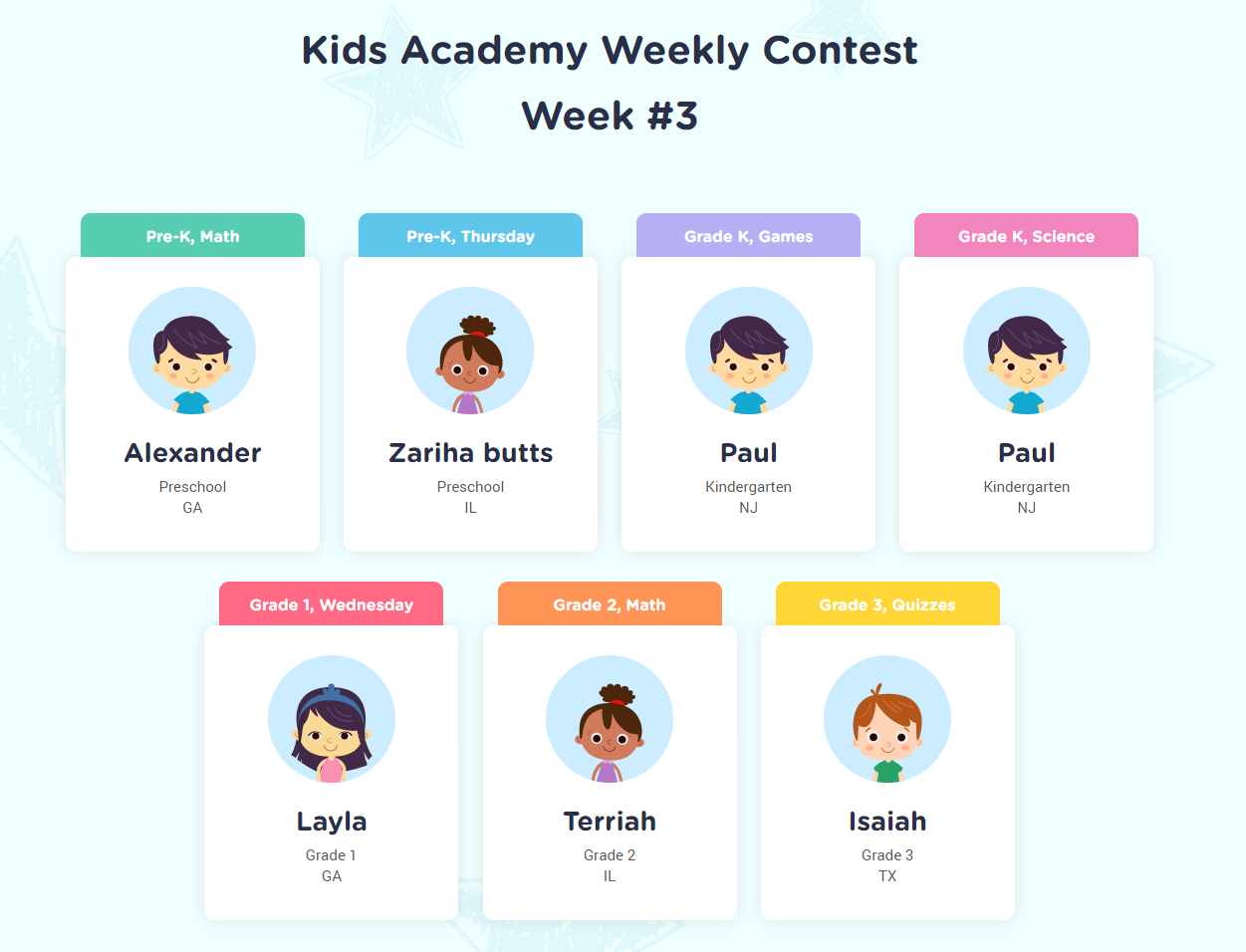Understanding habitats Science Worksheets for Ages 4-7
5 filtered results
-
From - To
Explore the wonders of nature with our "Understanding Habitats" science worksheets designed specifically for children ages 4 to 7. These engaging activities introduce young learners to various ecosystems, from forests and oceans to deserts and wetlands. Each worksheet is crafted to help children identify different habitats, understand the plants and animals that inhabit them, and recognize their importance to our planet. Perfect for classroom or home use, these interactive worksheets encourage critical thinking, creativity, and a love for the environment, ensuring children develop foundational science skills while having fun. Start your adventure in learning about habitats today!


Sorting Animals Worksheet


Space: Assessment 1 Worksheet


Beaver Pond: Looking for a Solution Worksheet


Sorting Animals by Land, Air and Sea Worksheet


Animals and Plants: Assessment 2 Worksheet
Understanding habitats is essential for children aged 4-7 because it nurtures their innate curiosity about the world. At this young age, children are naturally eager learners, and exploring habitats—which are homes for animals, plants, and ecosystems—provides a rich opportunity for hands-on experience and cognitive development.
For parents and teachers, fostering this knowledge encourages environmental awareness early on, setting the foundation for responsible behavior towards nature. Understanding habitats helps kids to appreciate biodiversity and recognize the interconnectedness of living organisms. It empowers them to explore questions about where animals live, what they eat, and how they adapt to their surroundings, promoting critical thinking skills.
Additionally, learning about habitats can elevate literacy and numeracy skills as children discuss concepts such as ecosystems, food chains, and conservation. Engaging in these subjects through storytelling, crafts, and outdoor exploration makes learning active and enjoyable, aligning with their developmental play-based learning style.
Ultimately, teaching young children about habitats sets the stage for them to become informed, environmentally conscious adults equipped to address the ecological challenges of tomorrow. This foundational knowledge fosters empathy and responsibility towards the natural world, ensuring a more sustainable future for all.

 Assign to My Students
Assign to My Students




















